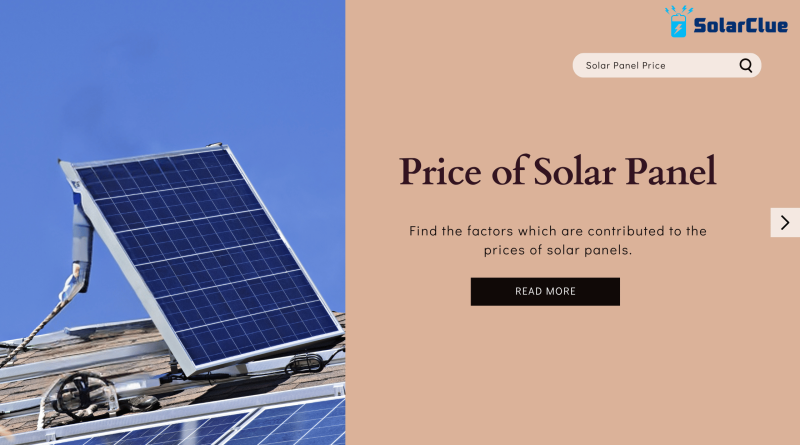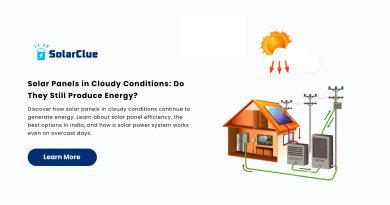What Is The Price Of Solar Panel?
Solar energy is an increasingly popular option for homeowners looking to reduce their electricity bills and their carbon footprint. Understanding the cost of solar panels is crucial for making an informed decision. This blog breaks down the factors influencing solar panel prices, the difference between panel cost and total system cost, government incentives, financing options, and more.
Table of Contents
- 1 Breaking Down the Cost of a Solar Panel System
- 1.1 Factors Affecting Solar Panel Prices
- 1.2 Comparing Costs of Different Solar Panel Technologies
- 1.3 The Impact of Government Incentives and Rebates
- 1.4 Financing Options for Solar Panel Purchases
- 1.5 Estimating Payback Period and Return on Investment
- 1.6 Tips for Finding the Best Price on Solar Panels
- 1.7 Cost Trends in the Solar Industry
Breaking Down the Cost of a Solar Panel System
The total cost of a solar panel system includes several components beyond the panels themselves. Here’s a breakdown:
| Component | Cost (Approx.) |
|---|---|
| Solar Panels | ₹20,000 – ₹40,000 per panel |
| Inverter | ₹15,000 – ₹50,000 |
| Mounting Structure | ₹5,000 – ₹15,000 |
| Batteries | ₹10,000 – ₹20,000 per battery |
| Installation | ₹20,000 – ₹50,000 |
| Permits and Fees | ₹5,000 – ₹15,000 |
| Miscellaneous | ₹5,000 – ₹10,000 |
Factors Affecting Solar Panel Prices
Several factors influence the price of solar panels, including:
| Factor | Description |
|---|---|
| Panel Type | Monocrystalline, polycrystalline, and thin-film panels vary in cost and efficiency. |
| Wattage | Higher wattage panels produce more electricity and typically cost more. |
| Efficiency | More efficient panels convert more sunlight into electricity, often at a higher cost. |
| Brand | Well-known brands may charge a premium for their products. |
Comparing Costs of Different Solar Panel Technologies
Different solar panel technologies come with varying costs and efficiencies:
| Technology | Efficiency Range | Cost Range (per panel) |
|---|---|---|
| Monocrystalline | 15-20% | ₹25,000 – ₹40,000 |
| Polycrystalline | 13-16% | ₹20,000 – ₹30,000 |
| Thin-Film | 10-12% | ₹15,000 – ₹25,000 |
The Impact of Government Incentives and Rebates
Government incentives and rebates can significantly reduce the overall cost of installing a solar panel system. In India, the following incentives are available:
| Incentive | Description |
|---|---|
| Central Financial Assistance (CFA) | Up to 40% subsidy on residential solar installations. |
| State Subsidies | Additional subsidies may be available from state governments. |
| Net Metering | Allows consumers to sell excess electricity back to the grid. |
| Tax Benefits | Accelerated depreciation and tax exemptions on solar investments. |
Financing Options for Solar Panel Purchases
There are several financing options available for purchasing solar panels:
| Financing Option | Description |
|---|---|
| Solar Loans | Loans specifically for solar installations, often with favorable terms. |
| Power Purchase Agreements (PPA) | A third party installs and maintains the system, and the homeowner pays for the electricity generated. |
| Solar Leases | Similar to PPAs, but with fixed monthly lease payments. |
| Green Energy Loans | Offered by many banks and financial institutions for renewable energy projects. |
Estimating Payback Period and Return on Investment
The payback period is the time it takes for the savings from a solar panel system to cover its cost. This depends on factors such as:
| Factor | Description |
|---|---|
| System Cost | Total upfront cost of the solar panel system. |
| Electricity Rates | Higher electricity rates lead to greater savings. |
| Government Incentives | Subsidies and tax benefits reduce the effective cost. |
| System Performance | Efficiency and output of the solar panels. |
Tips for Finding the Best Price on Solar Panels
To find the best price on solar panels, consider the following tips:
1. Compare Quotes: Get multiple quotes from different installers.
2. Check Reviews: Look for reviews and testimonials from previous customers.
3. Investigate Warranties: Ensure the panels come with a comprehensive warranty.
4. Look for Sales and Discounts: Some companies offer seasonal discounts or promotional offers.
5. Consider Long-Term Savings: Cheaper panels may not always provide the best long-term value.
Cost Trends in the Solar Industry
The cost of solar panels has been decreasing over the years due to advancements in technology and increased production. Here are some trends to watch:
| Trend | Description |
|---|---|
| Decreasing Panel Prices | Improved manufacturing processes and economies of scale. |
| Increased Efficiency | Technological advancements leading to higher efficiency panels. |
| Government Support | Continued government incentives promoting solar adoption. |
| Financing Innovations | New financing options making solar more accessible. |
Conclusion
Understanding the various factors that influence solar panel costs and the available incentives can help you make an informed decision about investing in solar energy. By considering the total system cost, exploring financing options, and staying informed about industry trends, you can find the best solution for your energy needs and maximize your return on investment.
Here at SolarClue®, we offer a smart, practical, and “beautiful” solution. You will be answered for all the questions related to Solar.
We provide all kinds of brands that are the Best Solar panels in India.
If you are the one who is planning for the solar power system. Don’t hesitate to contact our team!
Looking forward to empowering you with solar energy, just like hundreds of our other clients!
FAQs
1. What is the average cost of a solar panel system in India?
The average cost ranges from ₹60,000 to ₹2,00,000, depending on the system size and components.
2. Are there any government incentives for installing solar panels?
Yes, the Indian government offers subsidies, tax benefits, and net metering options to reduce the cost of solar installations.
3. How long does it take to recoup the investment in a solar panel system?
The payback period typically ranges from 5 to 10 years, depending on factors such as system cost, electricity rates, and government incentives.
4. What factors should I consider when choosing a solar panel?
Consider factors such as panel type, wattage, efficiency, brand reputation, and warranty.
5. Can I finance my solar panel purchase?
Yes, there are several financing options available, including solar loans, PPAs, solar leases, and green energy loans.



